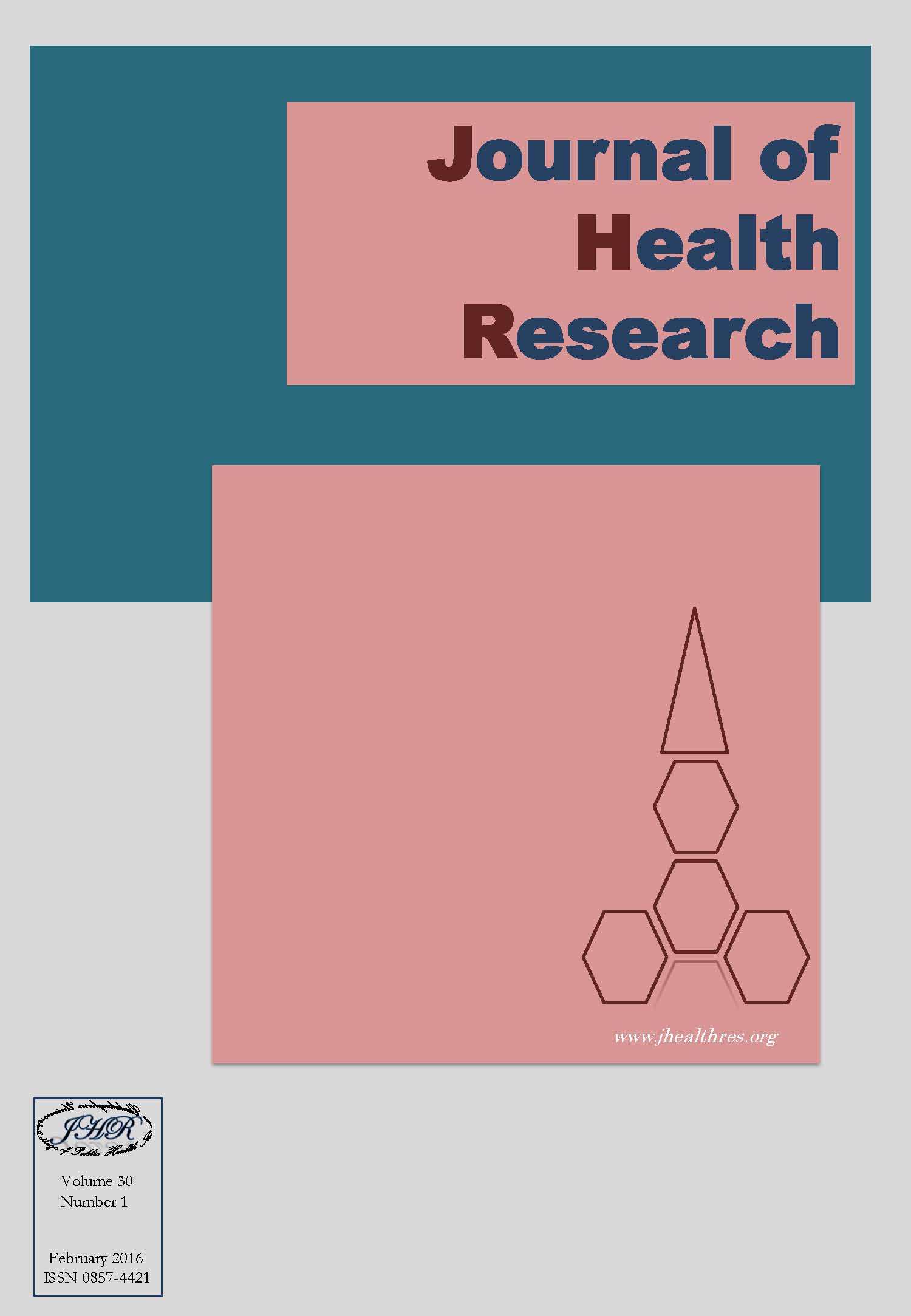The Effect of Response Time on Survival among Non-Traumatic Out-of-Hospital Cardiac Arrest Patients in Thailand
Keywords:
Out-of-hospital cardiac arrest, Emergency medical services, Advanced life support, Response time, ThailandAbstract
Background: Out-of-hospital cardiac arrest (OHCA) is one of the leading causes of death among people around the world. Although Emergency Medical service (EMS) systems have been developed over the past decade to improve the quality of care, the survival rate to hospital for OHCA patients is still low. The objective of this study was to examine the effect of response time (time from emergency call to arrival on the scene) on the survival of non-traumatic OHCA patients in Thailand.
Methods: A national EMS database of Thailand including 19,472 OHCA patients receiving chest compressions by advanced life support (ALS) team, EMS Thailand between 2011 and 2013. Total of 9,951 non-trauma OHCA patients were considered in this study. Binary logistic mixed effect modeling was used to investigate the effect of response time and other potential risk factors on non-traumatic OHCA patients’ survival. Imputation was used to investigate whether any bias was introduced though missing values.
Results: Among 9,951 non-trauma OHCA patients, 8,199 (82.42%) survived to hospital. Faster response time was associated with higher survival (OR = 0.97, 95% CI: 0.97, 0.98; p < 0.001). Other factors associated with survival among non-traumatic OHCA patients included patients who were administration of intravenous fluids (ORadj = 3.59, 95% CI : 3.15, 4.08, p < 0.001 ), OHCA occurring in urban location (ORadj = 1.49, 95% CI : 1.24,1.80; p < 0.001) and higher initial Glasgow coma score (GCS) (ORadj = 1.30 , 95% CI : 1.24,1.37; p < 0.001).
Conclusion: Early advanced care plays an important role in non-trauma OHCA patients’ outcomes in Thailand. Early response time of the emergency medical services system is important for reducingnon-traumatic OHCA patient mortality.







